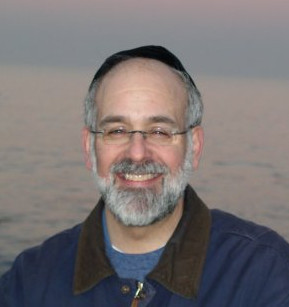Rabbi David Etengoff
337 results total, viewing 281 - 290
|
One of the thornier, daily halachic problems is that of which bracha (blessing) to recite on a particular food. Not too surprisingly, a vast literature has been created by our poskim (halachic decisors) that contains a plethora of opinions and approaches regarding every questionable item.
more
By Rabbi David Etengoff
|
5/2/13
|
|
The beginning of our parasha, Emor, focuses on a variety of laws that pertain solely to the kohanim. From a purely juridical perspective, they have little to do with the majority of the Jewish …
more
By Rabbi David Etengoff
|
5/11/17
|
|
Of Moshe than we have encountered before. Instead of the brave advocate of the Jewish people and undaunted servant of Hashem, we are met with a morose and despondent Moshe on the cusp of complete …
more
By Rabbi David Etengoff
|
5/30/18
|
|
Nearly all civilizations and cultures have been focused upon the importance of time. We Jews are no exception to this well-nigh universal rule. By way of example, one need only cite the famous words of King Solomon as presented in the third chapter of his masterful examination of the human spirit known as Kohelet (Ecclesiastes).
more
By Rabbi David Etengoff
|
10/18/11
|
|
The Torah contains countless dramatic moments. One of the most powerful appears in this week’s parasha, Vayigash, when Joseph finally reveals himself to his brothers:
“Now Joseph could …
more
By Rabbi David Etengoff
|
1/6/13
|
|
The first three words of our parasha, Bechuchotai, present a significant interpretative challenge. The phrase, “Im bechuchotai teleichu” could readily be translated, “if you …
more
By Rabbi David Etengoff
|
5/30/19
|
|
While Shemini Atzeret occurs at the end of Succot, it is, as Midrash Bereshit Rabbah notes, a chag bifnei atzmo (festival in its own right) rather than a part of Succot. (100:7) This is clearly …
more
By Rabbi David Etengoff
|
10/10/17
|
|
Our parasha, Yitro, is one of two in the Torah that presents the narrative of the Revelation at Mount Sinai (the other is Va’etchanan in Devarim). Ma’amad Har Sinai (the Revelation) …
more
By Rabbi David Etengoff
|
2/3/21
|
|
Parasha Vayakel begins with the construction of the mishkan (the portable desert sanctuary): “Moses called the whole community of the children of Israel to assemble, and he said to them: …
more
By Rabbi David Etengoff
|
3/2/16
|
|
One of the most unusual textual juxtapositions in parasha Emor occurs at the onset of the Torah’s discussion of the mo’adim (festivals) (Vayikra, chapter 23): “And the L-rd spoke to …
more
By Rabbi David Etengoff
|
5/18/16
|

 59.0°,
Mostly Cloudy
59.0°,
Mostly Cloudy 
